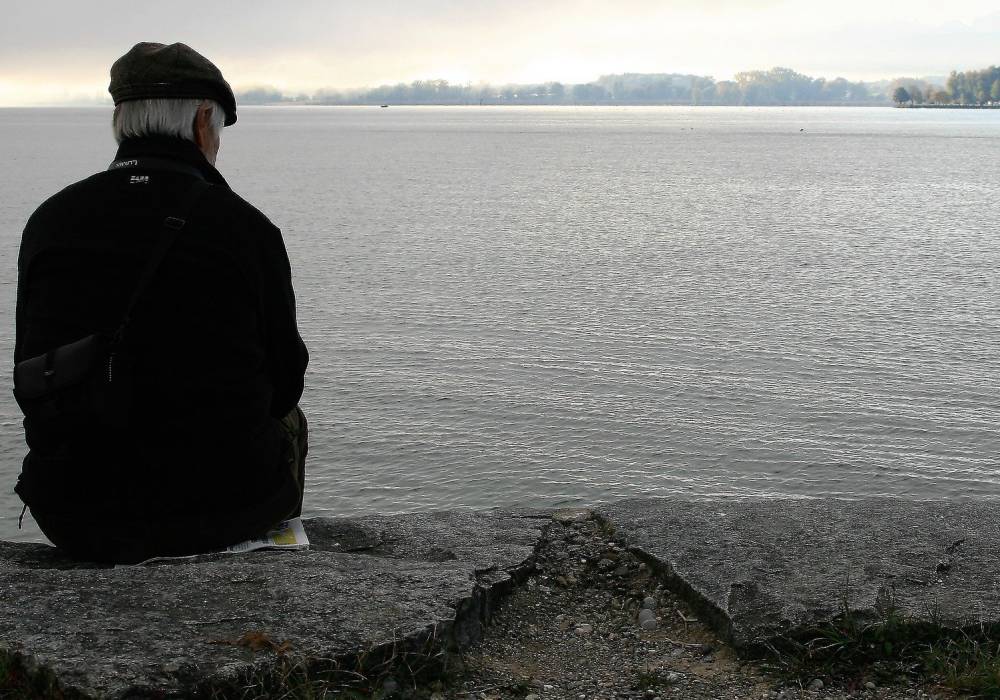News
Is listening the cure for loneliness?

Seventy-three-year-old Terry had been supporting his wife with dementia for three years. It had been an uphill struggle and after funding her care home costs in the last year of her illness, she passed away. His personal recovery was tough but after some time, he found the courage to join a face-to-face community group and confide in others.
But in March this year, community support groups shut down and Terry’s lifeline to companionship ended abruptly. Soon, he was taken to hospital with a suspected heart attack, which turned out to be a panic attack. The overwhelming sense of loss he had experienced over the past year had affected his mental health and loneliness had set in.
A survey conducted by the British Red Cross and the Co-operative found that nine million adults are plagued with a feeling of loneliness. And research by the Office for National Statistics (ONS) who have been researching people’s well-being for nearly a decade showed that in the first month of Coronavirus, 7.6 million people said their mental health and wellbeing had been affected by loneliness.
For many people, lockdown changed the interaction with their usual support networks overnight. For some, this meant turning to their local community when they needed it, including befriending groups, which can be accessed through GP social prescribing services and charities like the Samaritans. The inevitable shift to online and telephone communication is no emotional replacement for face-to-face get-togethers but the power of listening can enrich the quality of the conversation and more importantly, make people feel more positive and less lonely.
Alan Heyes is managing director of Therapy Partners and founder of charity, Rewrite Your Story. As a practicing therapist, he has some compelling insights into how listening can help reduce loneliness and some practical tips about how to use listening as an effective tool.
‘We managed to help Terry with some counselling and befriending. Talking to someone just once a week did make a difference to his life. Reflecting back and showing that you’d listened to and understood his stories, even over the phone, was really effective for him.’
People across global communities are learning to adapt to this new world because we can’t do the normal things we’re used to. Like friends having a chat over Zoom with a beer in hand instead of a conversation in the pub. Or workplaces holding thematic meetings to foster a sense of community and families maintaining connections over virtual platforms like WhatsApp, Zoom and FaceTime.
Alan believes it’s in everyone’s gift to make a difference to another human being by doing a few simple things when it comes to listening.
Firstly, get rid of distractions to have a deep and meaningful conversation. Find a quiet space, turn off your phone, and check in with yourself first. Practice mindfulness and relaxation to park personal stresses and have a clear mind to ensure you are fully present and focused on what the other person needs.
Operations Manager, Natalie Price agrees, ‘I make a point in both my personal and work life to actually pay attention to what is in front of me, put my phone away, close my laptop, remove distractions. People like to feel appreciated and giving your undivided attention is a really good way of showing you value someone.’
Make an effort to listen actively to help strengthen your emotional understanding and empathy. Listening attentively shows that you are fully engaged in what the other person is saying and makes them feel valued and encouraged to open up.
When we are listening to someone, we are already thinking about how to respond to what they are saying. When we try to anticipate the conversation or interrupt while the person is speaking, we can often respond in the wrong way, which reinforces that we are not listening. We have two ears and one mouth and should use them proportionally.
Senior Manager, Colin Karpeta says, ‘One of the tips I once received was that to really listen, do not have your answer ready before the person speaking has finished. I have observed so many times since that people (including me) feel the need to interrupt with their opinion/answer while the other person is still speaking. This can only mean they are not truly listening. This is particularly hard when in a tense situation but if you practice, you get better at it, and you find people more willing to talk to you in future.’
Show empathy by reflecting back, paraphrasing what has been said to show you have understood and withhold judgement or offering your advice or opinions.
Validate the person’s experiences and be patient while you listen. They may have carried something for a long time and not have been able to talk about it.
Listen for what’s not being said and make an effort to notice the signals and non-verbal behaviour like facial expressions and tone of voice people are showing that can indicate what they are feeling.
Peer support groups can be life savers. They provide a safe environment where like-minded people can talk about and listen to others with shared experiences. By allowing ourselves to be vulnerable we enable others to do the same and through that honest exchange, genuine connection occurs, and loneliness diminishes.
Best-selling author and speaker, William Ury believes that listening may be the golden key that opens the door to human relationship.
Even the smallest gesture can shift someone’s perception of the world and restore their faith in humanity. It’s in times like these when people are anxious about making new relationships and it is challenging to start having conversations with people again. A simple nod and a smile or a ‘How are you getting on?’ may be the only human exchange someone has all day and can reinforce that their world is not such a lonely and dark place after all.
